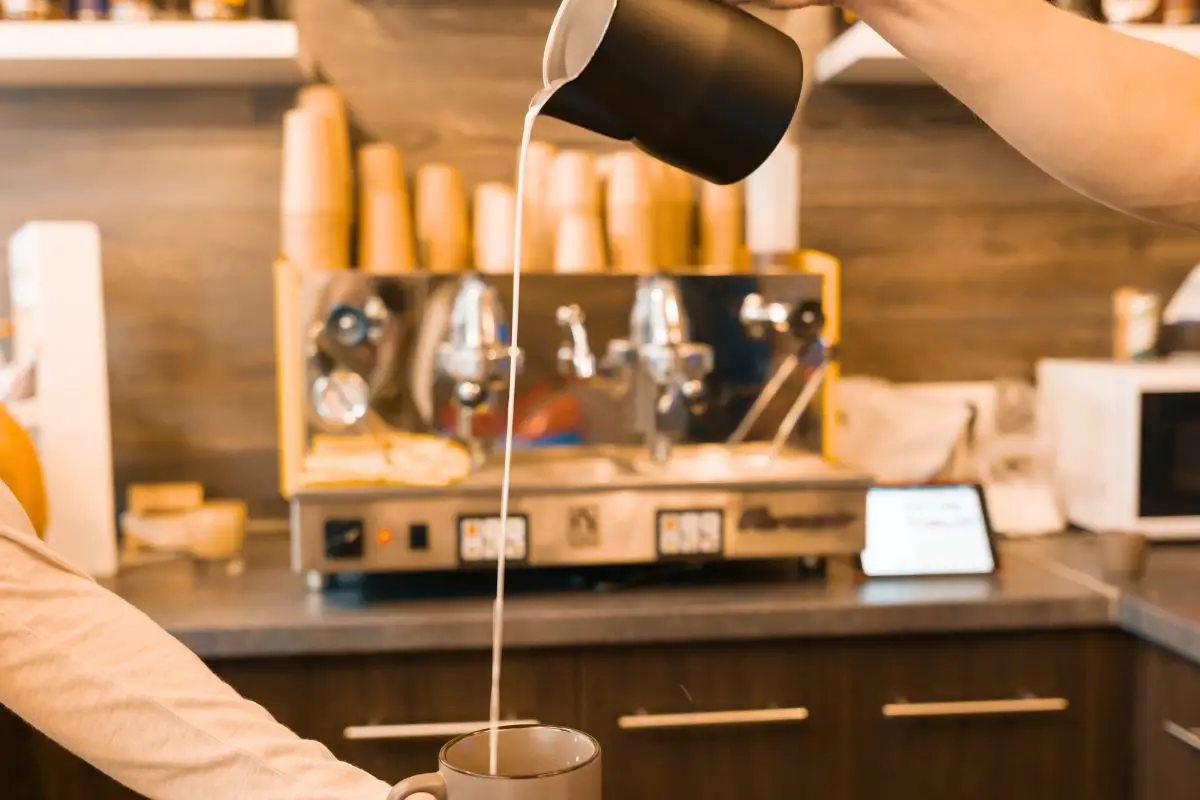When it comes to the taste of coffee, many individuals may find that it differs between their home-brewed cup and the one they enjoy at a restaurant or café. This difference in taste can be attributed to several factors, including the quality of the beans, the freshness of the coffee, the professional brewing techniques employed, the optimal water quality used, the attention to detail in preparation, and the overall atmosphere and experience provided by the establishment.

By understanding these elements, individuals can gain insights into why restaurant coffee often tastes better and potentially replicate these factors in their own brewing practices for a more enjoyable cup of coffee at home.
The quality of the beans used plays a significant role in the taste of restaurant coffee. Restaurants often invest in high-quality coffee beans sourced from reputable suppliers. These beans are carefully selected based on their flavor profiles, ensuring a rich and flavorful brew.
In contrast, individuals may unknowingly purchase lower quality beans for home consumption, which can result in a less satisfying coffee experience. Additionally, the freshness of the coffee is crucial. Restaurants typically rotate their coffee stock more frequently, ensuring that customers are served with coffee that is recently roasted and ground.
This freshness contributes to the enhanced flavor and aroma experienced in restaurant coffee compared to the potentially stale beans used at home.
Key Takeaways
- Quality of coffee beans from reputable suppliers plays a significant role in the taste of restaurant coffee.
- Freshness of coffee in restaurants, achieved through frequent rotation of stock, contributes to enhanced flavor and aroma.
- Professional brewing techniques, such as precise measurements and ratios, brewing time and temperature control, and methods like pour-over and French press, elevate the quality of coffee.
- Optimal water quality, free from impurities and with the right balance of minerals, enhances the flavor profile of restaurant coffee.
Quality of the Beans
The superior taste of restaurant coffee can be attributed to the use of high-quality coffee beans. Restaurants often invest in sourcing and selecting the best beans available in the market. These beans are typically of a higher grade and have undergone extensive quality control measures to ensure their superiority. The high-quality beans contribute to a more complex and flavorful cup of coffee, providing a delightful experience for the customers.
One of the main reasons why restaurant coffee tastes better is the careful selection of coffee beans. Restaurants prioritize sourcing beans from reputable suppliers who have a reputation for providing high-quality products. These suppliers often work directly with coffee farmers, ensuring that the beans are grown in optimal conditions and harvested at the peak of their flavor. By focusing on quality, restaurants can offer a more refined coffee experience that is unmatched by lower-grade beans.
In addition to sourcing high-quality beans, restaurants also pay attention to the roasting process. Roasting is a crucial step that determines the flavor profile of the coffee. Restaurants employ skilled roasters who have extensive knowledge and experience in the art of coffee roasting. They carefully roast the beans to enhance their natural flavors while avoiding any burnt or bitter notes. This meticulous approach to roasting allows the unique characteristics of the beans to shine through, resulting in a rich and well-balanced cup of coffee.
The freshness of the coffee is another factor that contributes to the superior taste of restaurant coffee. Restaurants understand the importance of serving coffee at its peak freshness to maximize flavor. They often have a higher turnover of coffee, ensuring that it is brewed and served within a short period after roasting. This freshness translates into a more vibrant and aromatic cup of coffee. By prioritizing freshness, restaurants are able to provide their customers with a coffee experience that is unparalleled.
Freshness of the Coffee
Freshly brewed coffee possesses a distinct aroma and flavor that captivates the senses, making it an enticing option for those seeking an enjoyable caffeine experience. The freshness of the coffee plays a crucial role in enhancing its taste and aroma.
Here are four key factors that contribute to the freshness of restaurant coffee:
- Roasting Date: The freshness of coffee begins with the roasting date. Coffee beans are typically at their peak flavor within two weeks of being roasted. Restaurants often source their coffee from local or specialized roasters, ensuring that the beans are recently roasted. This freshness translates to a more vibrant and flavorful cup of coffee.
- Grinding On-Demand: To further preserve the freshness, restaurants often grind the coffee beans just before brewing. Grinding coffee releases the oils and compounds that contribute to its flavor and aroma. By grinding the beans on-demand, restaurants can maximize the exposure of these compounds to the hot water during the brewing process, resulting in a more flavorful and aromatic cup of coffee.
- Proper Storage: Restaurants take great care in storing their coffee beans to maintain their freshness. Coffee beans are sensitive to light, heat, air, and moisture, which can cause them to deteriorate quickly. To prevent this, restaurants store their coffee beans in airtight containers away from direct sunlight and heat sources. This careful storage ensures that the coffee beans retain their optimal flavor and aroma for a longer period.
- Regularly Replenished Supply: Another factor contributing to the freshness of restaurant coffee is the regular replenishment of their coffee supply. To ensure that the coffee served is always fresh, restaurants maintain a steady inventory of coffee beans and rotate them regularly. This practice ensures that customers are consistently served with the freshest coffee available, enhancing their overall coffee experience.
The freshness of coffee is just one aspect of why restaurant coffee tastes better. The subsequent section will delve into the professional brewing techniques employed by restaurants, which further enhance the overall quality of the coffee.
Professional Brewing Techniques

Utilizing refined brewing techniques elevates the quality of the coffee, ensuring a satisfying and flavorful experience for discerning palates. Professional baristas understand the importance of precise measurements and ratios when brewing coffee. They carefully weigh the coffee grounds and water to achieve the optimal brewing ratio, which allows for the extraction of the coffee’s desirable flavors while minimizing any bitter or unpleasant tastes.
Additionally, they pay close attention to the brewing time and temperature, as these factors can greatly impact the final taste of the coffee. By following these precise techniques, restaurant coffee is able to consistently deliver a high-quality product that is both delicious and enjoyable.
Furthermore, professional baristas employ various brewing methods to enhance the flavor profile of the coffee. One popular technique is the pour-over method, which involves pouring hot water over the coffee grounds in a slow and controlled manner. This allows for a more even extraction and ensures that all the flavors are fully extracted from the coffee.
Another technique is the use of a French press, which involves steeping the coffee grounds in hot water for a longer period of time before plunging the filter. This method results in a bolder and more robust flavor. These different brewing methods allow restaurants to offer a diverse range of coffee flavors, catering to the preferences of different individuals.
In addition to brewing techniques, professional baristas also pay attention to the cleanliness and maintenance of their equipment. Coffee machines and grinders are regularly cleaned and calibrated to ensure that they are in optimal working condition. This level of care and attention to detail ensures that the coffee is brewed under the best possible conditions, free from any residual flavors or contaminants that could affect the taste. By investing time and effort into maintaining their equipment, restaurants are able to consistently produce coffee that is of a higher quality and more enjoyable for their customers.
Transition: Moving on to the next aspect that contributes to the superior taste of restaurant coffee, it is worth exploring the significance of optimal water quality.
Optimal Water Quality
Achieving optimal water quality is crucial for enhancing the overall flavor profile of brewed coffee. Water makes up a significant portion of the final cup of coffee, and its composition can greatly impact the taste.
The ideal water for brewing coffee should be free from impurities such as chlorine, minerals, and organic compounds that can alter the flavor. Additionally, the water should have the right balance of minerals to extract the desirable flavors from the coffee beans. By using water that meets these criteria, restaurants can ensure that their coffee tastes better than what can be achieved at home.
One important factor in water quality is the absence of chlorine. Chlorine is commonly used to disinfect tap water, but it can leave behind a residual taste that affects the flavor of coffee. Restaurants often use water filtration systems or pre-filtered water to remove chlorine and other impurities. This ensures that the coffee is not tainted by any unwanted flavors, allowing the natural flavors of the coffee beans to shine through.
Another aspect of optimal water quality is the right mineral content. Minerals in water, such as calcium and magnesium, play a crucial role in extracting the flavors from coffee beans. However, too much or too little mineral content can result in an imbalanced taste. Restaurants carefully monitor the mineral content of their water to achieve the perfect balance. This attention to detail in water quality contributes to the overall superior taste of restaurant coffee.
Achieving optimal water quality is essential for enhancing the flavor of brewed coffee. By using water that is free from impurities and has the right mineral content, restaurants can ensure that their coffee tastes better than what can be achieved at home. The absence of chlorine and the careful balance of minerals contribute to a superior flavor profile.
With attention to detail in water quality, restaurants can create a foundation for the subsequent section about the importance of attention to detail in preparation.
Attention to Detail in Preparation
An essential aspect of the coffee brewing process involves meticulous attention to detail in preparation, as it is through these carefully executed steps that the nuances and complexities of the coffee bean’s flavor can be fully realized.
In order to achieve the best possible taste, restaurant coffee preparation typically follows a set of rigorous procedures.
The first step involves selecting the right coffee beans. Restaurants often source high-quality, specialty beans that have been carefully cultivated and processed. These beans are usually roasted in-house to ensure freshness and optimal flavor.
Once the beans are selected, they are ground just before brewing. This step is crucial as it helps to preserve the delicate aromas and flavors of the coffee. The grind size is carefully adjusted depending on the brewing method to ensure proper extraction.
Moving on to the next step, the water used for brewing is another important consideration. Restaurants often use filtered water to eliminate any impurities that can affect the taste of the coffee. The water temperature is also closely monitored, as it can greatly impact the extraction process.
By paying meticulous attention to detail in each of these preparation steps, restaurants are able to unlock the full potential of the coffee bean’s flavor profile. The result is a cup of coffee that is rich, flavorful, and satisfying.
However, the taste experience of restaurant coffee is not solely determined by these preparation techniques. The atmosphere and overall experience of dining in a restaurant also contribute to the perception of the coffee’s taste.
Atmosphere and Experience

The ambiance and overall dining experience significantly contribute to the sensory perception and enjoyment of the brewed beverage. When customers enter a restaurant, they are often greeted by a warm and inviting atmosphere, with pleasant lighting, comfortable seating, and soothing background music. These elements create a sense of relaxation and comfort, allowing patrons to fully immerse themselves in the dining experience. Moreover, the attention to detail in creating an appealing ambiance can create a subconscious feeling of safety for customers, which enhances their overall enjoyment of the coffee.
In addition to the physical aspects of the atmosphere, the overall dining experience also plays a crucial role in the perception of restaurant coffee. When customers visit a restaurant, they are usually served by professional and trained staff who are knowledgeable about the coffee they are serving. The staff’s expertise in recommending and explaining different coffee options can enhance the customers’ understanding and appreciation of the beverage. Furthermore, the presentation of the coffee, such as the use of elegant cups, saucers, and latte art, adds to the overall experience, making the coffee feel more special and enjoyable.
To further paint a picture of the impact of atmosphere and experience on the perception of restaurant coffee, consider the following table:
| Aspects of Atmosphere and Experience | Impact on Perception of Coffee |
|---|---|
| Warm and inviting ambiance | Enhances relaxation and comfort, allowing customers to fully enjoy the coffee |
| Professional and knowledgeable staff | Improves customers’ understanding and appreciation of the coffee |
| Elegant presentation | Adds to the overall experience, making the coffee feel more special and enjoyable |
Overall, the ambiance and overall dining experience in a restaurant contribute significantly to the perception and enjoyment of the brewed beverage. The attention to detail in creating an appealing ambiance, the expertise of the staff, and the elegant presentation of the coffee all play a role in enhancing the sensory experience for customers. By providing a pleasant and engaging atmosphere, restaurants create an environment where customers can fully appreciate and enjoy the taste of their coffee.
Frequently Asked Questions
How do restaurant coffee beans differ from the ones available for home brewing?
Restaurant coffee beans differ from those available for home brewing due to factors such as freshness, roast level, and grind size. Restaurants often use fresh beans, roast them to perfection, and grind them to the appropriate size, resulting in a superior taste and aroma.
What are some common mistakes people make when brewing coffee at home?
Common mistakes in home coffee brewing include using stale beans, incorrect water temperature, improper grind size, and inconsistent measurements. These errors result in a lackluster cup, leaving us longing for the comforting embrace of a restaurant coffee.
Are there any specific brewing techniques used in restaurants that can enhance the flavor of coffee?
Restaurants often use techniques like pre-infusion, which allows coffee grounds to bloom before extraction, and precise water temperature control to enhance the flavor of coffee. These methods ensure optimal extraction and result in a more balanced and flavorful cup of coffee.
What factors contribute to the optimal water quality for brewing coffee?
The optimal water quality for brewing coffee is influenced by several factors. One interesting statistic is that the ideal water temperature for brewing is between 195-205°F, which maximizes extraction without imparting any undesirable flavors.
Can the atmosphere and experience of a restaurant actually affect the taste of coffee?
The atmosphere and experience of a restaurant can indeed affect the taste of coffee. Factors such as lighting, music, and decor can create a pleasant and comforting environment, which can enhance the overall sensory experience of drinking coffee.
Conclusion
In conclusion, the superior taste of coffee in restaurants can be attributed to several factors.
Firstly, the quality of the beans used plays a significant role. Restaurants often source high-quality beans that have been carefully selected and roasted to perfection. This ensures a rich and flavorful cup of coffee that is hard to replicate at home.
Secondly, the freshness of the coffee is crucial. Restaurants typically have a high turnover of coffee, meaning that it is brewed and served quickly after being roasted. This results in a more vibrant and aromatic brew compared to coffee that has been sitting on the shelf for weeks.
Furthermore, professional brewing techniques employed by skilled baristas contribute to the exceptional taste of restaurant coffee. These professionals have undergone extensive training and have honed their craft, ensuring that each cup is brewed to perfection. From the precise measurements of coffee and water to the optimal brewing time and temperature, every detail is carefully considered.
Moreover, the quality of water used in brewing coffee is often overlooked but plays a vital role in the final taste. Restaurants invest in high-quality water filtration systems to ensure that the water used in brewing is free from impurities that can affect the flavor of the coffee.
Lastly, the attention to detail in the preparation of coffee in restaurants cannot be underestimated. From the cleanliness of the equipment to the proper storage of the beans, every step is meticulously followed to maintain the integrity of the coffee.
In addition to the technical aspects, the atmosphere and experience of enjoying coffee in a restaurant setting also contribute to its perceived superior taste. The ambiance, the company, and the overall dining experience create a sense of enjoyment and satisfaction that enhances the flavor of the coffee. It is the combination of all these factors that makes restaurant coffee taste better than what can be achieved at home.
In conclusion, the taste of coffee in restaurants surpasses that of homemade coffee due to the quality of the beans, freshness, professional brewing techniques, optimal water quality, attention to detail, and the overall dining experience. It is the culmination of these factors that results in a cup of coffee that is rich, flavorful, and satisfying. So, the next time you find yourself savoring a delicious cup of coffee in a restaurant, remember that it is not merely a coincidence but rather a result of careful consideration and skillful execution.
Related articles: